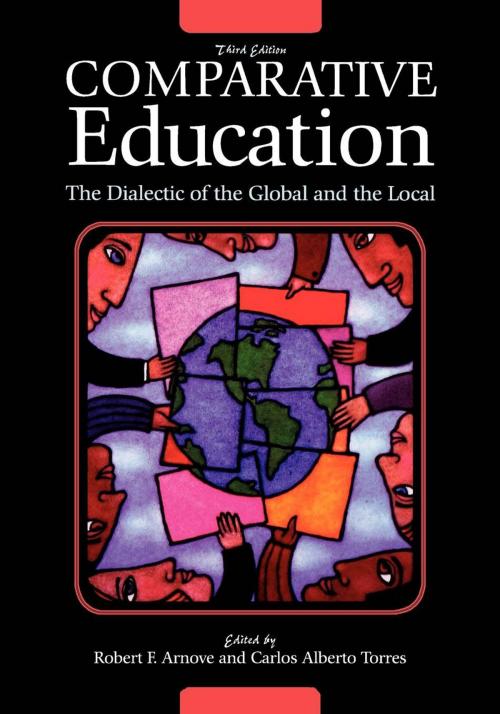Comparative Education
The Dialectic of the Global and the Local
Nonfiction, Reference & Language, Education & Teaching| Author: | ISBN: | 9780742574502 | |
| Publisher: | Rowman & Littlefield Publishers | Publication: | September 16, 2007 |
| Imprint: | Rowman & Littlefield Publishers | Language: | English |
| Author: | |
| ISBN: | 9780742574502 |
| Publisher: | Rowman & Littlefield Publishers |
| Publication: | September 16, 2007 |
| Imprint: | Rowman & Littlefield Publishers |
| Language: | English |
Comparative Education: The Dialectic of the Global and the Local, Third Edition brings together many of the outstanding scholars in the field of comparative and international education to provide new perspectives on the dynamic interplay of global, national, and local forces as they shape the functioning and outcomes of education systems in specific contexts. Various chapters in the book call for a rethinking of the nation-state as the basic unit for analyzing school-society relations; provide new ways of conceptualizing equality of educational opportunity and outcomes; call attention to the need to study social movements in relation to educational reform; emphasize the value of feminist, postcolonial, and culturally sensitive perspectives to comparative inquiry into the limitations as well as potential of education systems to contribute to individual development and social change; and provide detailed critical accounts of how various international financial and technical assistance agencies shape educational policy and practice in specific regions of the world.
Comparative Education: The Dialectic of the Global and the Local, Third Edition brings together many of the outstanding scholars in the field of comparative and international education to provide new perspectives on the dynamic interplay of global, national, and local forces as they shape the functioning and outcomes of education systems in specific contexts. Various chapters in the book call for a rethinking of the nation-state as the basic unit for analyzing school-society relations; provide new ways of conceptualizing equality of educational opportunity and outcomes; call attention to the need to study social movements in relation to educational reform; emphasize the value of feminist, postcolonial, and culturally sensitive perspectives to comparative inquiry into the limitations as well as potential of education systems to contribute to individual development and social change; and provide detailed critical accounts of how various international financial and technical assistance agencies shape educational policy and practice in specific regions of the world.















